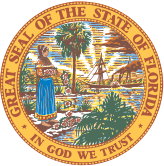Alternative (Installment) Payment Plan for Property Taxes
Taxpayers may choose to pay their property taxes quarterly by participating in an installment payment plan. To be eligible for the program, a taxpayer’s estimated tax bill must be in excess of $100.00. Those who qualify must fill out and return an Installment Plan application form to the Tax Collectors’ Office prior to May 1st. Installment Application forms are available at all county tax offices or you can download one here and mail or bring it into our office prior to the May 1st deadline.
The plan requires that the first installment must be made no later than June 30th to receive a discount. Payments accepted after June 30th through July 31st are accepted without a discount. Failure to make the first payment will result in automatic removal of the parcel from the plan, and the taxpayer will be required to pay the taxes due, in full, by March 31st.
Upon meeting the first installment deadline, the taxpayer is then obligated to participate in the program for the entire year. Discounts do not apply to delinquent payments. Any amount remaining unpaid on April 1st is treated as a delinquent tax bill.
The following payment schedule applies to the installment plan:
- 1st installment: 1/4 the total of estimate taxes discounted 6%. Payment due by June 30th.
- 2nd installment: 1/4 the total estimated taxes discounted 4.5%. Payment due by September 30th.
- 3rd installment: 1/4 the total estimated taxes plus 1/2 of any adjustment made for actual tax liability, discounted 3%. Payment due by December 31st.
- 4th installment: 1/4 of the total estimated taxes plus the remaining 1/2 of any adjustment for actual tax liability. No discount applies. Payment due by March 31st.
Taxpayers participating in the installment payment plan are automatically re-enrolled each year and do not have to fill out a new application. The first 2 installments are based upon the existing tax bill. Any changes to ownership, value or exemption(s), will be reflected in the final 2 bills.
Deferred Taxes
Tax deferral is designed to help taxpayers whose income is low relative to the amount of real estate tax due on their residence. With the deferral plan, taxpayers may defer all or part of their taxes, with interest accruing on the deferred amount until it is paid. The deferral becomes a lien on the property. Several conditions must be met in order to defer taxes.
County residents that have homestead exemption on the current roll may defer taxes in excess of 5% of their income. If the taxpayer is 65 or older, they may defer an amount in excess of 3% of their income. County residents with incomes less than $ 10,000 ($ 12,000 if 70 or older) may defer the entire amount of taxes. Income means adjusted gross income as defined by the Internal Revenue Service and must include the income of all household members.
In addition to the income requirements, several other conditions must be met. The home mortgage may not exceed 70% of the assessed value, and all liens and deferred taxes may not exceed 85% of the home’s assessed value. In addition, proof of fire and extended coverage home insurance must be in excess of all liens and deferred tax. The insurance policy must have a payable clause to the Tax Collector.
Applications for the deferral plan must be made each year after the tax bills have been mailed, on or before January 31st. Applications are available at the Tax Collector’s Office.
